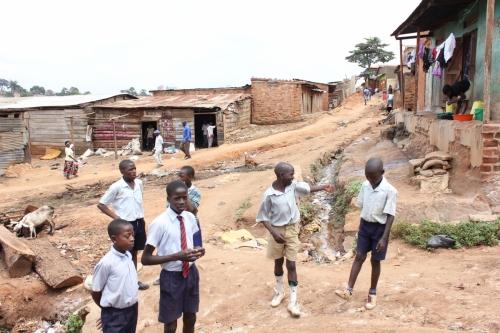WASHINGTON, DC – The Initiative for Disaster Resilience and Humanitarian Affairs is a multi-million dollar initiative at GW’s Elliott School of International Affairs and will combine education and research with on-the-ground training programs in developing countries to prepare local leaders to respond to and recover from disasters. The new program will operate projects in more than a dozen countries to improve disaster resilience when nations face conflict, extreme weather, terrorism or other natural and man-made disasters.
Ky Luu, J.D. ’00, leads the initiative. Mr. Luu previously founded the Disaster Resilience Leadership Academy at Tulane University, which will collaborate with the new GW initiative.
“Today we live in a world where five times more people are affected by disasters than a generation ago, and armed conflict and terrorism have forced more than 65 million people from their homes,” Luu said. “Our current operational model where we are dependent on international actors to intervene in humanitarian crises in Syria, Nigeria and South Sudan is not sustainable. There is an urgent need to build the capacity of local stakeholders to become viable partners for the international community in the short term and to assume a leadership role in setting the priorities and policies that will reduce disaster risks and promote humanitarian principles and practices in the long term.”
A large part of the initiative’s work involves research to better understand the social, economic, environmental and infrastructure factors that enable communities to withstand and respond to disasters such as droughts, floods, hurricanes and conflicts. The initiative also convenes and facilitates leadership training to address root causes of vulnerability to strengthen disaster resilience across 14 countries in Africa, Southeast Asia and South America.
The initiative is supported by several government and foundation grants, including about $4 million in previous funding that will be transferred to GW. These activities are part of a larger $25 million effort by local and international partners.
The program’s base at GW allows it to build a strongly integrated research component and, eventually, curricular and student opportunities, including research assistant positions. Interdisciplinary opportunities with GW’s School of Engineering and Applied Science and Milken Institute School of Public Health, as well as other departments such as anthropology, geography and the Global Women’s Institute, factored heavily in the decision for the initiative to form at GW.
With a clear purpose, the initiative also presents a unique opportunity for students at the Elliott School to gain first hand interdisciplinary knowledge through research and practical experience. Dean Brigety observed the potential benefits, “IDRHA brings a great deal of research that students can help support—Research that will provide real solutions, and research that will add to our scholarship here at the Elliott School. GW will become a clear leader in training young people and finding solutions for the world's toughest humanitarian challenges.”
###


